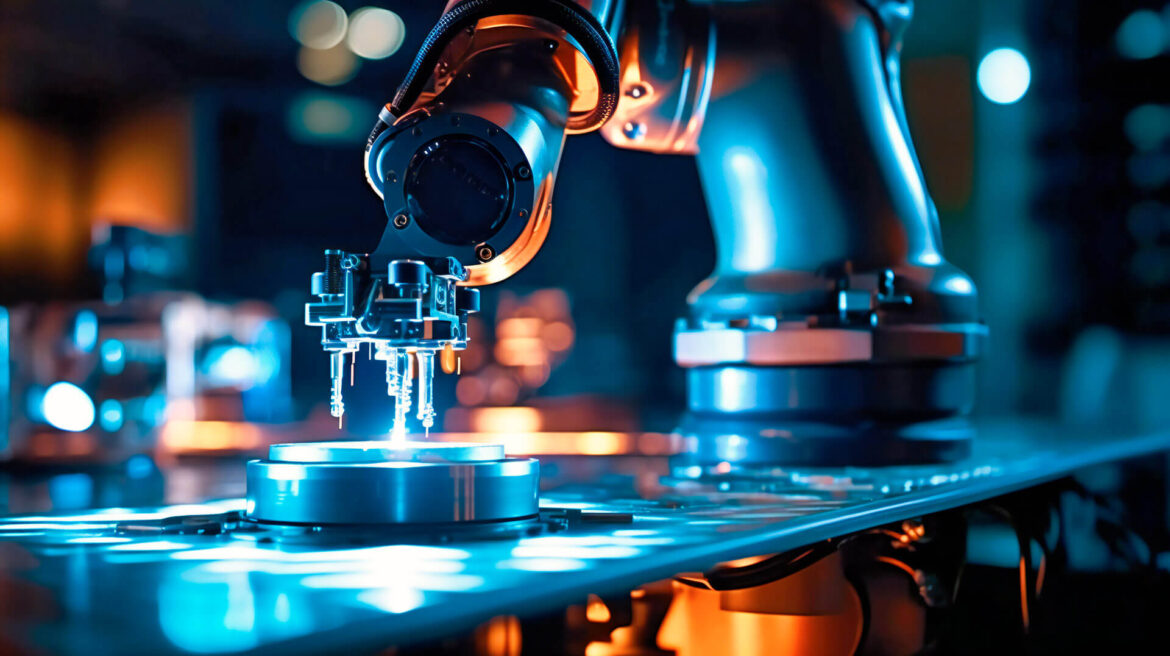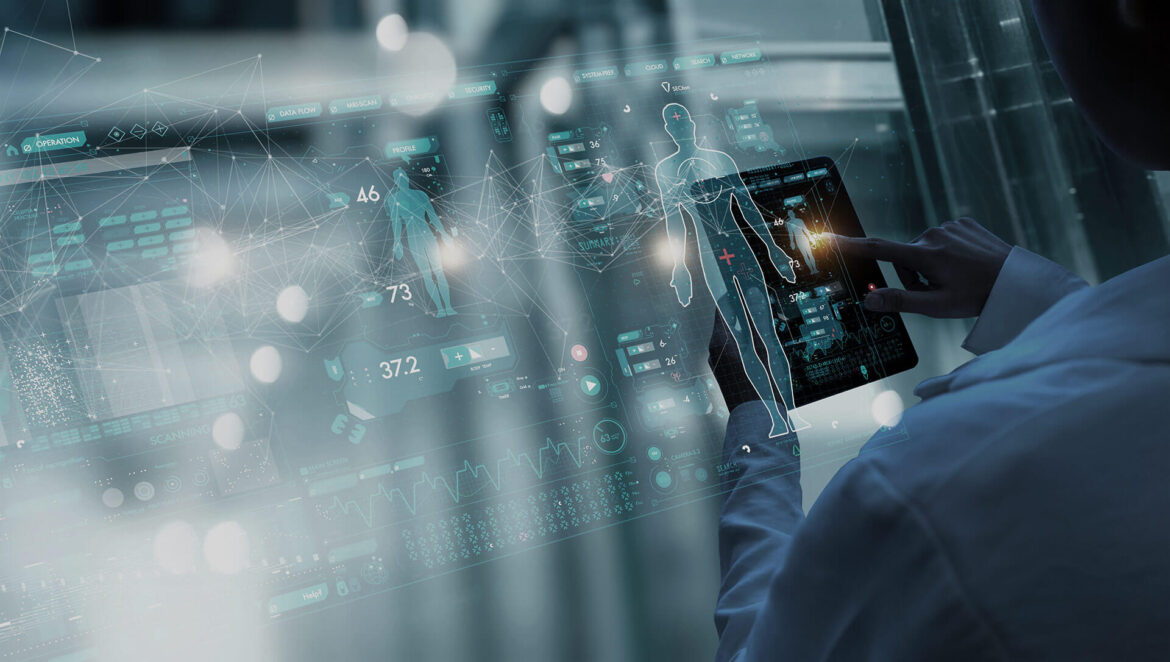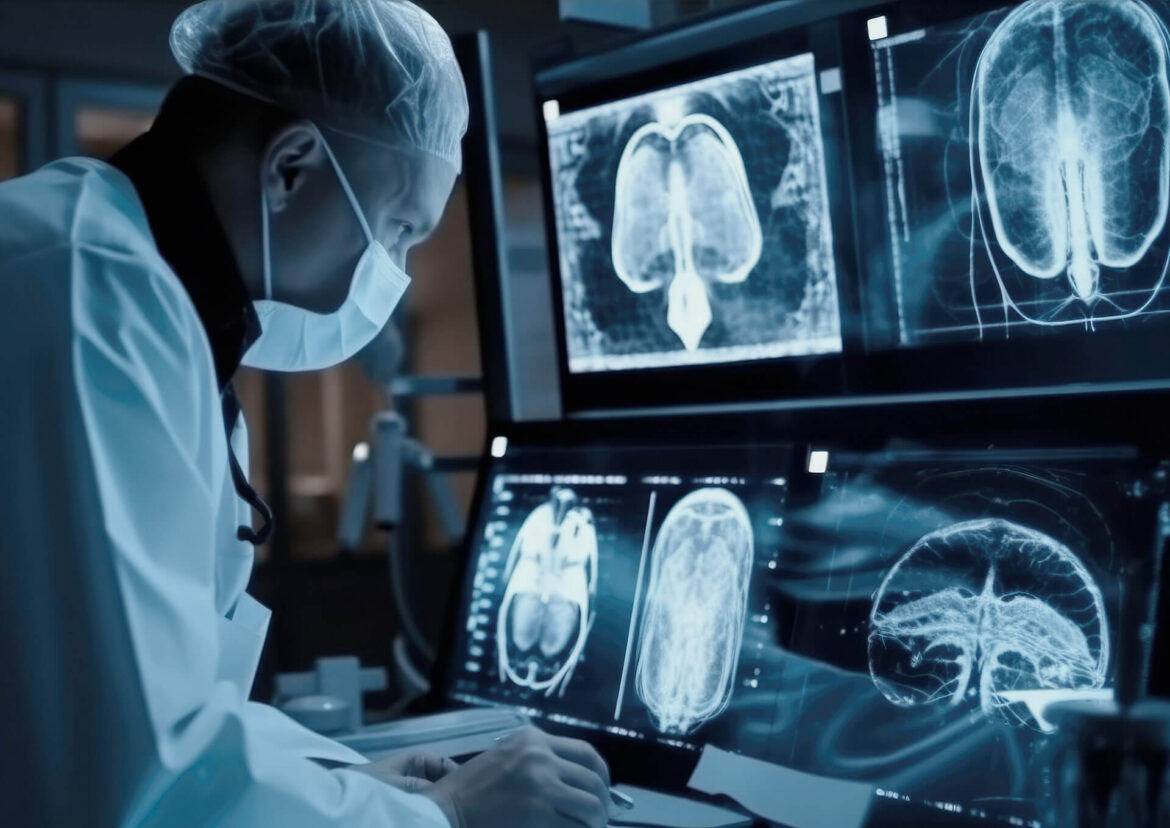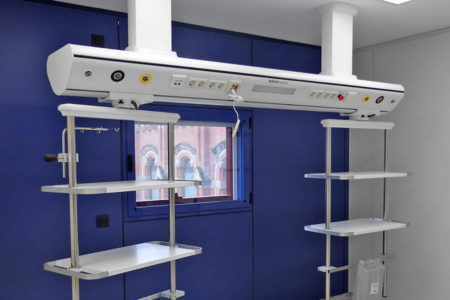Industry 4.0 has left its mark on numerous economic sectors and the hospital environment is no exception. The application of advanced technology in hospitals has generated a wide range of opportunities to improve medical care, optimize processes and transform the patient experience.
In this new era of healthcare innovation, the convergence of digital technologies such as artificial intelligence, the Internet of Things (IoT) and data analytics has led to a true revolution in the sector.
Discover how the transformation to Health 4.0 is redefining the way hospitals operate and deliver care. From the use of machine learning algorithms to diagnose diseases more accurately to the implementation of IoT devices to monitor and improve patient health, we are at the tipping point of a new era in medicine.

Industry 4.0
Industry 4.0 Industry 4.0 represents the fourth industrial revolution, characterized by the integration of advanced digital technologies in industrial processes. In this era, it promotes the interconnection of cyber-physical systems, the Internet of Things (IoT), artificial intelligence (AI) and data analysis, among other technological advances.
This revolution has a significant impact on the digital transformation of industrial sectors. Below, we highlight some of the main aspects of this transformation:
1. Automation and digitization of processes: In the context of Industry 4.0, there is a revolution in the automation of industrial processes through the use of technologies such as advanced robotics and cyber-physical systems. This leads to greater efficiency, reduced errors and shorter production times. In addition, the digitization of processes involves the collection and analysis of large volumes of data to make more informed decisions and optimize performance.
2. Internet of Things (IoT): The interconnection of devices and sensors through the Internet of Things is an essential element of Industry 4.0. This connectivity facilitates real-time communication and data exchange, enabling remote monitoring and control of industrial processes, optimization of machinery maintenance, inventory tracking and improved supply chain management.
3. Artificial intelligence (AI) and data analytics: AI plays a key role in Industry 4.0 by enabling intelligent automation, machine learning and data-driven decision making. Through large-scale data analysis, it is possible to extract valuable insights, identify patterns, predict failures and optimize operational efficiency.

4. Customization and flexible manufacturing: Industry 4.0 opens the door to further customization of products and services, as cyber-physical systems can be quickly adapted to individual needs. Flexible manufacturing becomes possible thanks to the ability to quickly reconfigure processes and adapt to changes in market demand.
5. Human-machine collaboration: Collaboration between humans and automated systems is a key aspect of Industry 4.0. Workers can collaborate with robots and intelligent systems on specific tasks, leveraging each other’s strengths. This can improve safety, productivity and product quality, while enhancing creativity and human talent.
Industry 4.0 marks a revolution in the way industrial sectors operate and adapt to technology. Its influence on digital transformation encompasses aspects such as automation, digitization, connectivity, data analytics and human-machine collaboration. By adopting these technologies, companies can experience significant improvements in efficiency, productivity and flexibility, while opening up new business opportunities in the digital economy.
Industry 4.0 in the hospitality sector
The application of Industry 4.0 in the hospital sector has delivered significant benefits, with improved operational efficiency being a particular highlight. Hospitals are adopting cloud-based hospital management systems, providing fast and secure access to patient information. This streamlines administrative processes, such as patient registration, medical record tracking and medical appointment scheduling.
In addition, the implementation of IoT devices has enabled real-time monitoring of medical equipment, which optimizes its maintenance and reduces downtime. The connectivity of these devices enables early detection of potential failures, facilitating their repair or replacement in a timely manner. This helps to ensure the availability and proper functioning of medical equipment crucial for patient care.
Another key aspect is the application of artificial intelligence (AI) in medical diagnosis and treatment. Machine learning algorithms have the ability to analyze large volumes of clinical and investigative data, which facilitates early detection of diseases, identification of patterns and personalization of treatments. AI also plays a key role in the interpretation of medical images, such as X-rays and MRI scans, enabling more accurate diagnoses and clinical decision-making.

Challenges and considerations
However, the implementation of Industry 4.0 in the hospital sector also presents challenges. Cybersecurity becomes a key issue, as medical data is highly sensitive and must be protected from potential threats. It is also important to address ethical and legal concerns related to the collection and use of healthcare data, ensuring privacy and informed consent of patients.
In conclusion, Industry 4.0 is significantly transforming the hospital sector. The adoption of advanced technologies improves operational efficiency, optimizes medical diagnosis and treatment, and provides more accessible and personalized care. Undoubtedly, this technological revolution has the potential to improve people’s quality of life, driving a positive transformation in the healthcare field. However, it is critical to address the challenges of cybersecurity and ethical considerations to ensure a safe and secure healthcare environment in this digital age.









